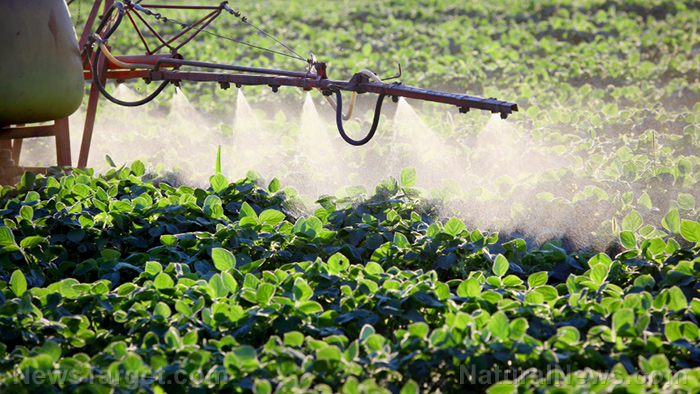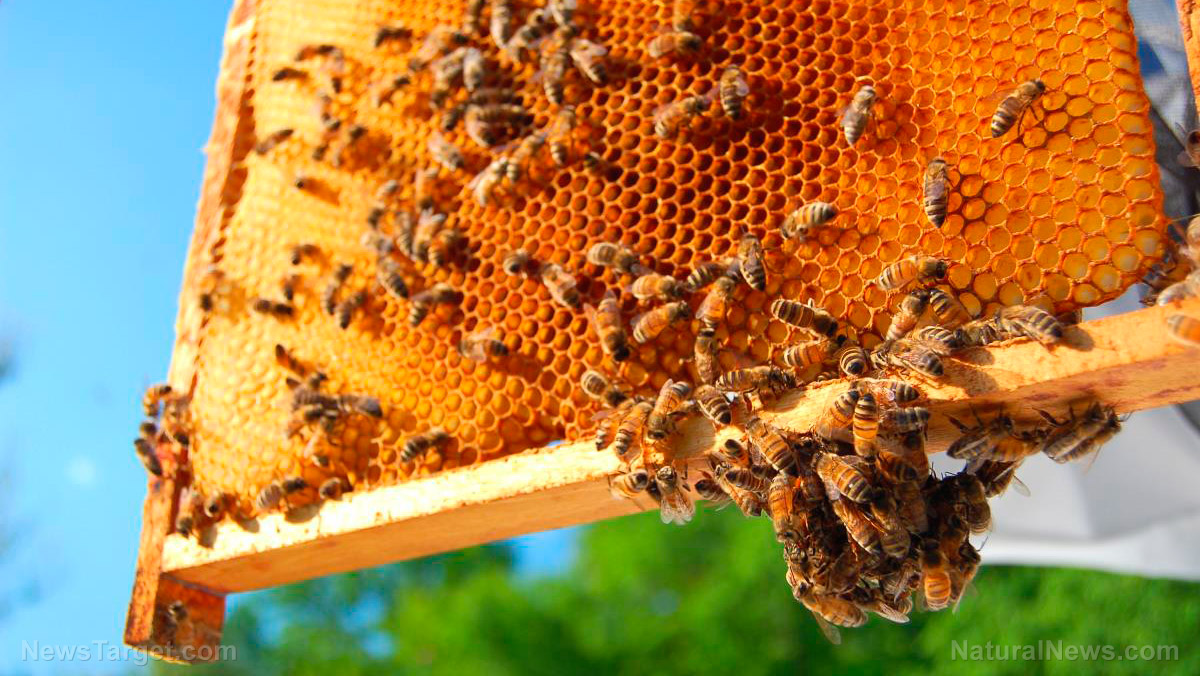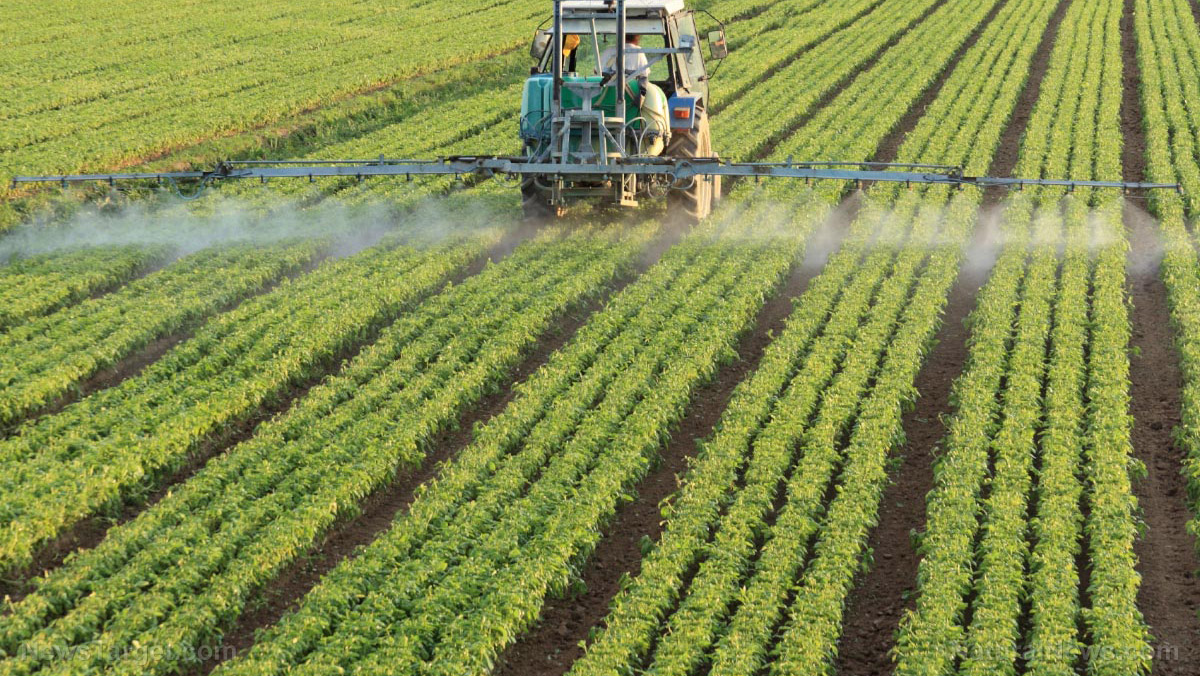Monsanto now offering CASH to farmers if they will use its toxic “dicamba” agricultural chemical
12/12/2017 / By Tracey Watson

The agri giant Monsanto, commonly known as the world’s most evil corporation, is now offering farmers cash in a desperate bid to distribute its XtendiMax with VaporGrip dicamba-based weed killer product. Reuters is reporting that Monsanto will be offering farmers refunds of over half the cost of the product in 2018, if they can prove that it was sprayed on soybeans known as Xtend, which have been specially engineered by the company to resist the toxic chemical.
These incentives are being offered even as the country is facing an agricultural crisis caused by dicamba-based products which evaporated and drifted away after being sprayed on crops.
Natural News reported last year that with increasing scrutiny being leveled at Monsanto’s most famous weed killer, the glyphosate-based Roundup product, Monsanto has quietly invested over $1 billion in developing dicamba-based products. As bad as Roundup is, dicamba poses even more of a threat because it is more volatile and can easily become airborne and drift from where it has been applied.
Of the 90 million acres of soybeans planted this year, about four percent sustained damage linked to dicamba spraying. (Related: Illegal spraying of Monsanto’s herbicide destroying crops nationwide.)
The crisis has led to regulators limiting how and when dicamba-based products can be used, and special training for farmers wishing to use such products is already being enforced at both state and federal levels.
These restrictions will, of course, make Monsanto’s product costlier to apply, but the company hopes that its cash-back incentive plan will be enough to motivate farmers to choose to use it anyway.
“We believe cash-back incentives for using XtendiMax with VaporGrip Technology better enable growers to use a management system that represents the next level of weed control,” said Ryan Rubischko, Monsanto’s product manager.
While XtendiMax costs around $11 per acre, Monsanto is offering farmers an additional rebate of $6 per acre if they use the product in combination with the genetically modified Xtend soybeans. In addition, if farmers choose to use a combination of other chemicals offered by the company they can get about $11.50 per acre in cash rebates.
Monsanto faces stiff competition from other distributors of dicamba-based weed killers, including Bayer. The company is also facing increasing government oversight in several states, including Missouri, North Dakota and Arkansas, all of which have plans in place to prohibit the spraying of dicamba at certain times of year.
Monsanto is also dealing with an onslaught of lawsuits from plaintiffs who claim that the glyphosate in their Roundup product caused them or their loved ones to develop a form of cancer known as non-Hodgkin lymphoma.
Natural News reported last year:
The law firm Baum Hedlund Aristei & Goldman is currently representing around 140 people, all of whom are suffering from non-Hodgkin lymphoma caused by glyphosate exposure.
The plaintiffs include individuals from 10 to 70 years old, but most are in the 50 to 60 age group. New lawsuits are being filed each week, and the firm eventually expects to represent as many as 500 clients in the glyphosate litigation.
It looks like 2018 might be a rocky year for Monsanto, but with virtually limitless cash resources, the sad reality is that they will probably survive by simply throwing more money at the problem. (Find more news on dicamba at Dicamba.news.)
Sources for this article include:
Tagged Under:




















